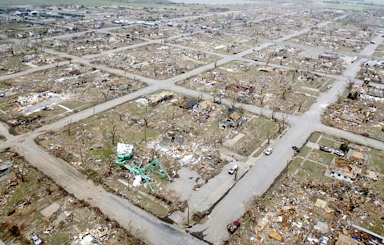One Less Thing to Be Concerned About
 |
| New York Times |
Saturday, the New York Times published an op-ed from an academic expressing fear the public will not be able to obtain quality weather and climate information in the future. Having spent 53 years in weather and climate science, I’m not aware of a single person or organization who would argue the public should not have access to weather and climate information. It is entirely a non-issue.
But, let’s take the story seriously as the average Times reader may have read it and now has questions or believes there is a genuine concern.
The ”people won’t be able to get their weather information” concern has been covered dozens of times since the late 1930’s (when Dr. Irving Krick began charging movie companies for specialized weather forecasts -- the first known commercial meteorology in the United States).
The Times article quotes my former boss, Dr. Joel Myers, but unwittingly makes a point opposite of what was intended:
Joel was referring to the 2007 EF-5 Greensburg, Kansas, Tornado.*
What evidently never occurred to author Mankin, is that private sector meteorology helped save the lives not only of the two train crews but also 230 ordinary people in the Greensburg Tornado! The entire story is here. And, that private sector meteorology can only prosper by making data and products available, not keeping them secret.
AccuWeather Enterprise Solutions’ warning for the Union Pacific was earlier than the National Weather Service’s (NWS) for the public because railroads need extra time to get their trains stopped outside of harm’s way. But the NWS’s warning for the public was timely and accurate. They did an outstanding job.
But, even before the NWS’s tornado warning for Greensburg, all three Wichita television stations’ (private sector) meteorologists were in continuous weather coverage -- urging people in the strongest possible terms to take cover. There was so much advance notice of the approaching storm that city employees drove fire trucks and the city ambulance out of the path of the tornado so they would be available for the post-storm rescues!
 |
| Wichita Eagle |
So, in the tornado situation that worries Dr. Mankin, private sector meteorologists:
- Kept two trains out of harm's way, saving the lives of both trains' crews and prevent massively expensive and disruptive train derailments that the trains been in the tornado's path. The derailments may have caused a release of hazardous materials which would have made the post-tornado cleanup tremendously more complex and dangerous.
- Continuously broadcast the NWS's tornado warning for Greensburg, provided safety information and enhanced that information with live spotter reports, including photos, from the area.
- Used computer display information created by -- you guessed it -- private sector meteorologists to track the storm and project its path.
Most of the innovation in applied meteorology comes from the private sector: color radar, time-lapse radar and cloud photography, tornado time-of-arrival, mesoscale modeling and much more all came from private sector meteorology.
What about the future?
No one is proposing that the National Weather Service and the National Oceanic and Atmospheric Administration (NOAA) be shut down. As long as a government agency with data distribution as part of its mission exists, and the law putting NOAA’s data in the public domain remains in effect, there is no problem nor will there be a problem in the future.
In addition, in every television and radio market, they are trying to build the largest audiences possible. In most of the United States, the #1 reason people watch television news is the weathercast. So, there is a profit-motive reason to continue presenting weather information.
Withholding climate and weather data is simply a non-issue.
The United States is lucky to have a federal agency that produces weather and climate information and many private sector companies that tailor weather and climate information for specialized requirements.
*FYI: Tornadoes are not causing “heavier human tolls” as a result of climate. For example, we are currently in the longest interval without an EF-5 tornado since records began 74 years ago. Violent tornadoes, in general, are much less frequent than 50 or 70 years ago.





A guest editorial rather than an Op-Ed. And if “One Less Thing to Worry About” than no need to read.
ReplyDeleteThat said, agree with the poster, as this “guest” author offers a less than real world analysis of what he sees as a concern. Simply stated, the needs of just in time commercial business operations are not adequately addressed solely by public sources, which impacts the safety of our public in many either misunderstood or generally unknown and unappreciated ways.